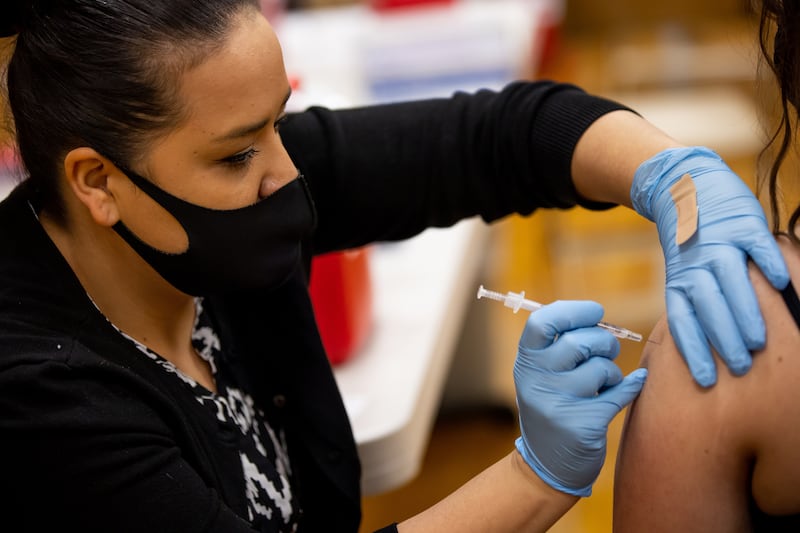The Pfizer COVID-19 vaccine might have led to less side effects because the company chose a smaller dose of its vaccine.
Why Pfizer’s vaccine has less side effects
Philip Dormitzer, chief scientific officer at Pfizer, told the Financial Times that Pfizer and BioNTech “used the minimum dose level” to create an immune response to protect people against the novel coronavirus.
- But that “minimum dose level” stopped the vaccine from creating bigger side effects.
- “If you look at what’s going on with all the COVID-19 vaccines out there, the derailer has often been adverse events that have cropped up,” he said, according to Business Insider.
What are COVID-19 symptoms?
The Centers for Disease Control and Prevention said that Pfizer’s and Moderna’s COVID-19 vaccines create similar side effects overall.
Most COVID-19 symptoms include:
- Soreness in the arm.
- Muscle aches.
- Fatigue.
- Fever.
However, there have been reports of “Moderna arm” or “COVID arm,” mostly among those who received the Moderna COVID-19 vaccine. And there have been some reports that Moderna’s vaccine has created very rare cases of myocarditis, a type of heart inflammation.
Moderna vs. Pfizer: Which creates more antibodies?
There has been some debate over which COVID-19 vaccine creates more antibodies. One recent study, which was published in a letter to the Journal of the American Medical Association, suggest that antibody levels were higher in people who got the Moderna COVID-19 compared to those who got the COVID-19 vaccine from Pfizer.
- The study said that Moderna COVID-19 vaccine has a higher level of the active ingredient that creates antibodies — 100 micrograms compared to 30 micrograms in Pfizer.


